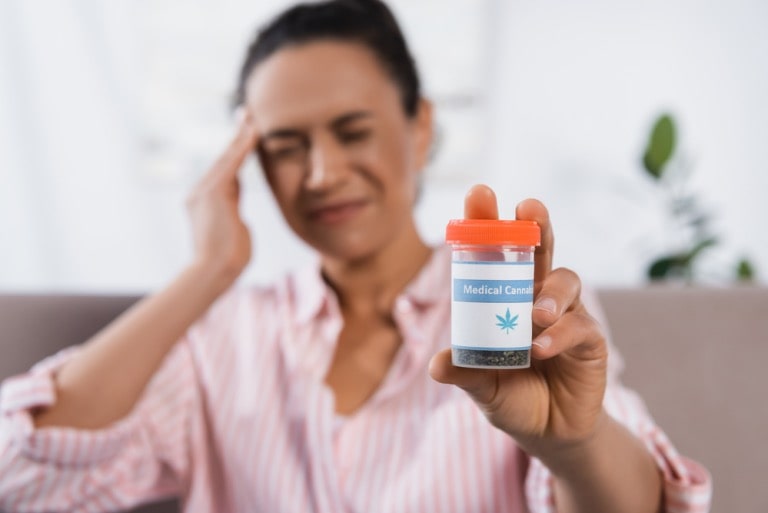Navigating Pain Management in Connecticut: The Cannabis Connection

In Connecticut, where the landscapes range from bustling cities to serene countryside, an increasing number of residents are exploring alternative treatments for chronic pain management. Among these alternatives, cannabis has emerged as a significant focus of scientific research and discussion.
This article will dive into the current research surrounding cannabis as a treatment for chronic pain, its efficacy, and how it compares to traditional painkillers. Additionally, it includes guidance on accessing medical cannabis from a reputable Connecticut dispensary.
The Science Behind Cannabis and Pain Relief
Cannabis contains several active compounds, notably tetrahydrocannabinol (THC) and cannabidiol (CBD), which are believed to alleviate pain through their interaction with the body’s endocannabinoid system. This system plays a pivotal role in regulating pain, inflammation, and immune system responses. Research indicates that THC can decrease pain intensity and improve sleep, while CBD is known for its anti-inflammatory properties without the psychoactive effects associated with THC.
Further diving into the mechanisms, THC binds to cannabinoid receptors in the brain and other parts of the body, influencing the perception of pain and providing relief. CBD, on the other hand, may help reduce chronic pain by impacting endocannabinoid receptor activity, reducing inflammation, and interacting with neurotransmitters. Together, these cannabinoids can have a synergistic effect, potentially enhancing each other’s pain relief qualities through what is known as the “entourage effect.”
Advantages Of Traditional Painkillers
One of the critical advantages of cannabis over traditional painkillers, such as opioids, is the lower risk of dependency and fewer side effects. Opioids, which are commonly prescribed for severe pain, are associated with significant risks, including the development of tolerance, addiction, and overdose. In contrast, cannabis presents a profile that is generally well tolerated and is associated with a lower risk of serious side effects.
Also, patients using cannabis for pain management often report improvements in their overall quality of life, not just relief from pain. They tend to experience better sleep patterns, reduced anxiety, and enhanced mood. These ancillary benefits are particularly important for chronic pain sufferers, whose conditions can encompass more than just physical symptoms.
In addition, cannabis offers versatility in consumption methods that can be tailored to individual preferences and medical needs, which is often not possible with traditional pain medications. Cannabis can be administered through various forms, including inhalation, oils, tinctures, edibles, and topical applications, allowing for more controlled dosages and quicker onset of pain relief. This flexibility helps patients manage their symptoms more effectively and in a manner that best suits their lifestyle and health requirements.
Navigating Cannabis for Medical Purposes in Connecticut
In Connecticut, accessing cannabis for medical purposes is regulated to ensure safety and efficacy. Patients looking to use cannabis for pain management must first be certified by a qualified healthcare provider. Following certification, patients can obtain a medical marijuana card, which allows them to purchase cannabis products from licensed dispensaries.
It is crucial for patients to visit a reputable Connecticut dispensary where products are tested for purity and potency. These dispensaries also offer the expertise of knowledgeable staff who can provide guidance on the appropriate strains and formulations to address specific types of pain.
The Role of Personalized Cannabis Treatment Plans
An emerging trend in pain management with cannabis involves personalized treatment plans tailored to individual needs. Personalized medicine in this context allows healthcare providers to consider various factors such as a patient’s specific pain type, intensity, and individual response to cannabis. This approach helps in fine-tuning dosage, frequency, and the ratio of THC to CBD to maximize therapeutic benefits while minimizing side effects.
By focusing on individualized treatment strategies, providers can offer more targeted and effective pain management solutions. This not only enhances patient outcomes but also contributes to a better understanding of how cannabis can be used most effectively across different pain conditions and patient profiles. As research advances, the integration of personalized cannabis treatments is expected to improve precision in pain management practices, offering a more nuanced and patient-centered approach.
Ensuring Safe and Effective Use
To optimize the benefits of cannabis for pain management, patients should adhere to prescribed dosages and seek strains and products specifically tailored for pain relief. Starting with low doses and gradually adjusting based on effectiveness and tolerance can help manage pain effectively while minimizing potential side effects.
Research continues to expand the understanding of cannabis as a viable option for chronic pain management. With its potential to offer effective pain relief and a safer profile compared to traditional painkillers, cannabis represents a promising alternative for many sufferers. As research evolves, it will likely provide deeper insights into the optimal use and regulatory considerations of cannabis in pain management, further integrating it into therapeutic practices across the state and beyond.





